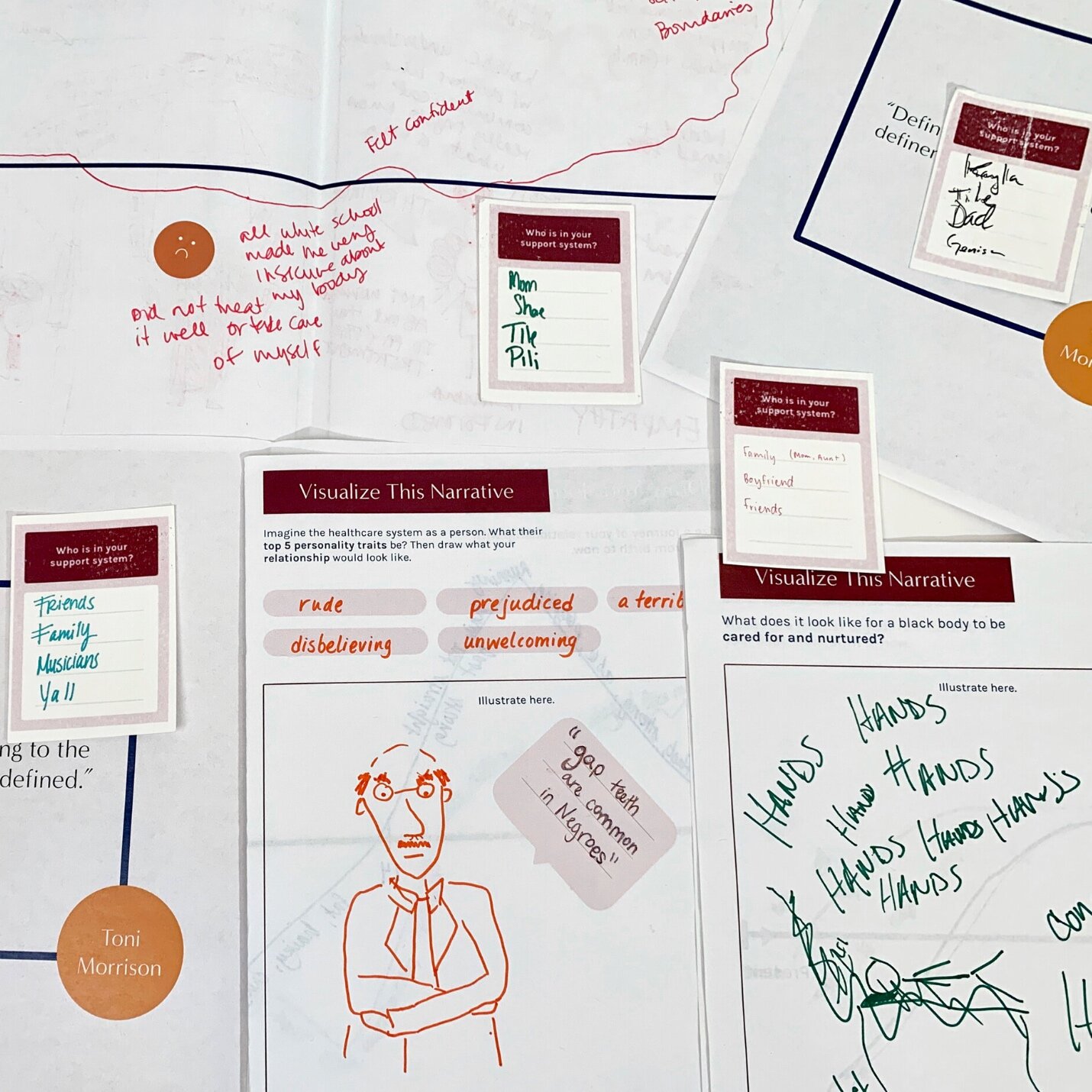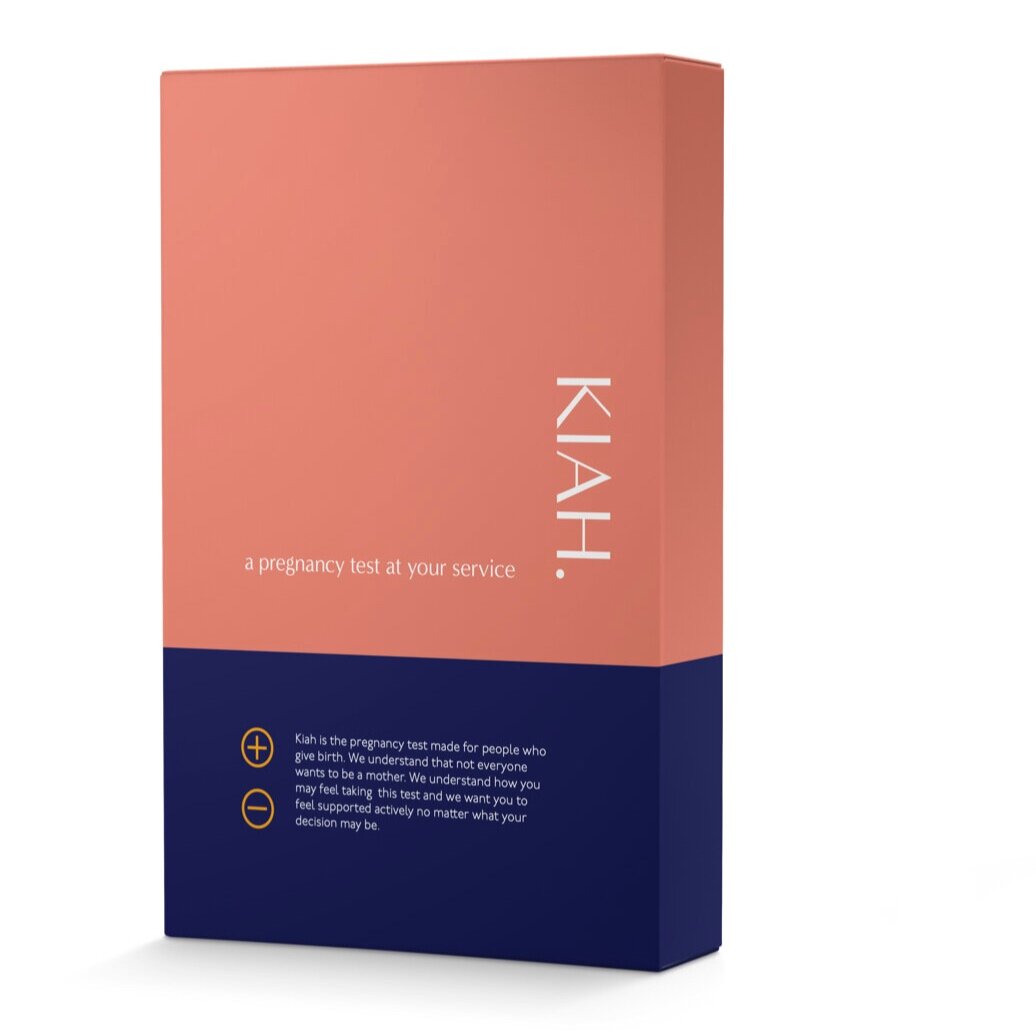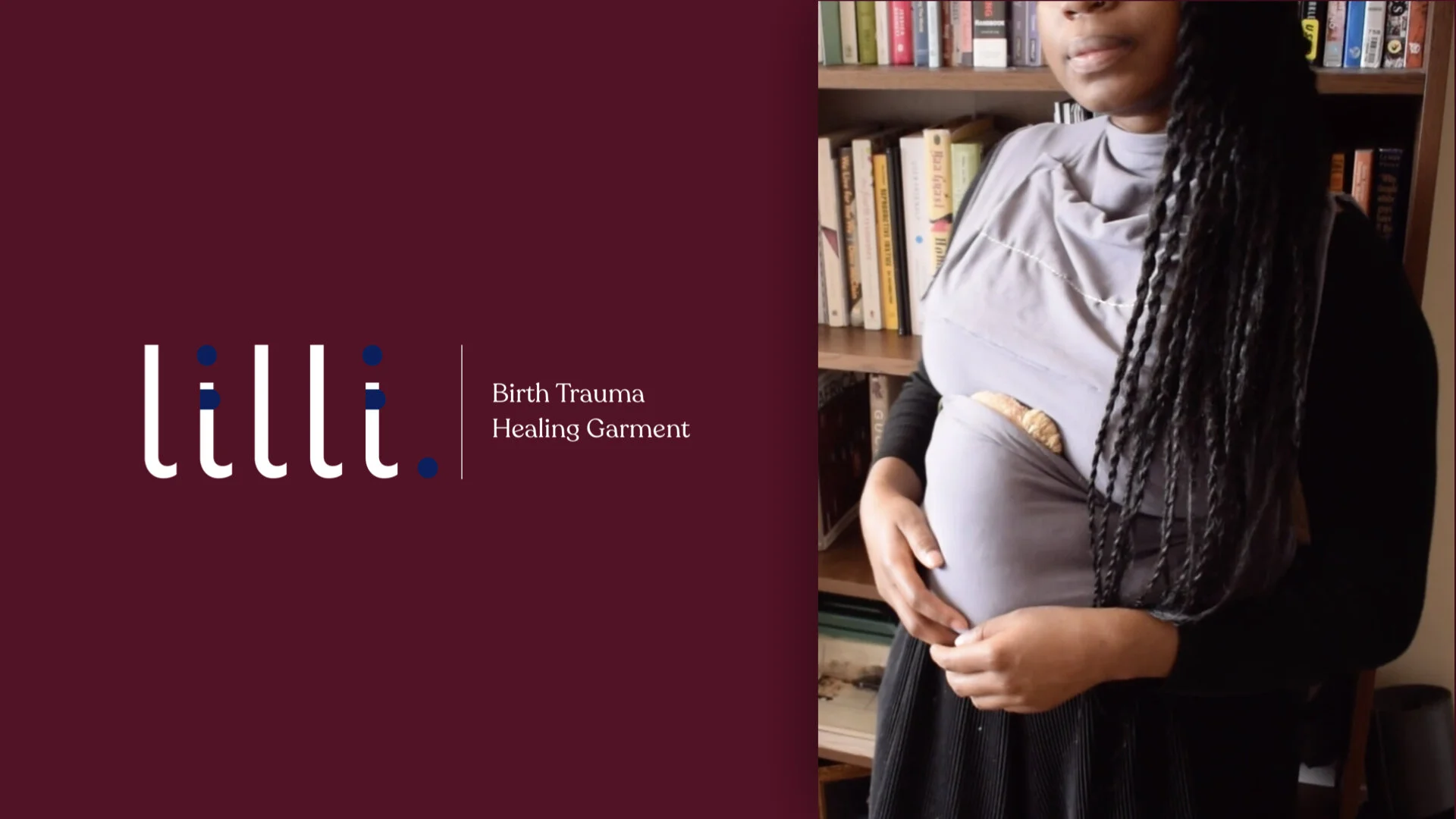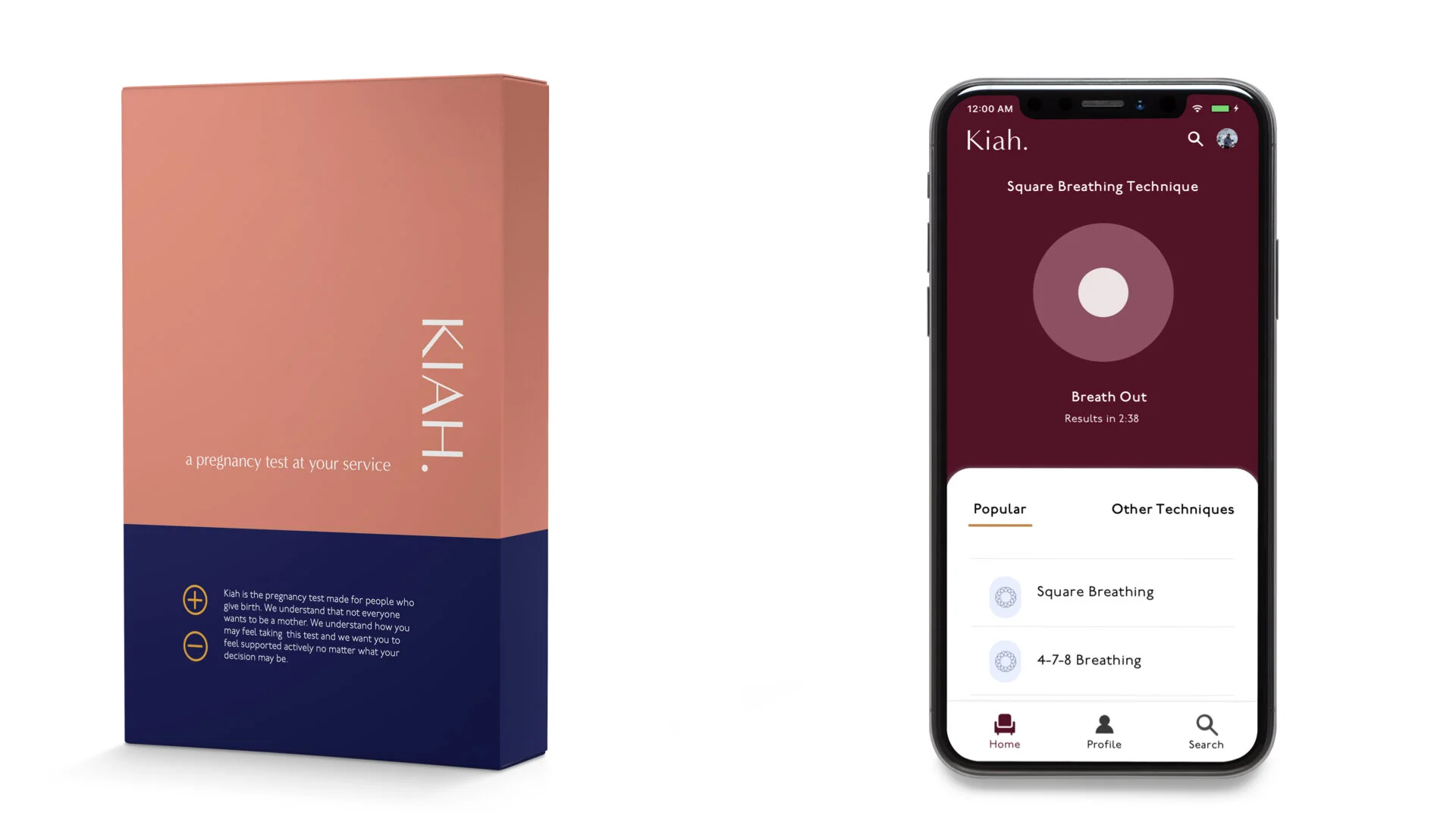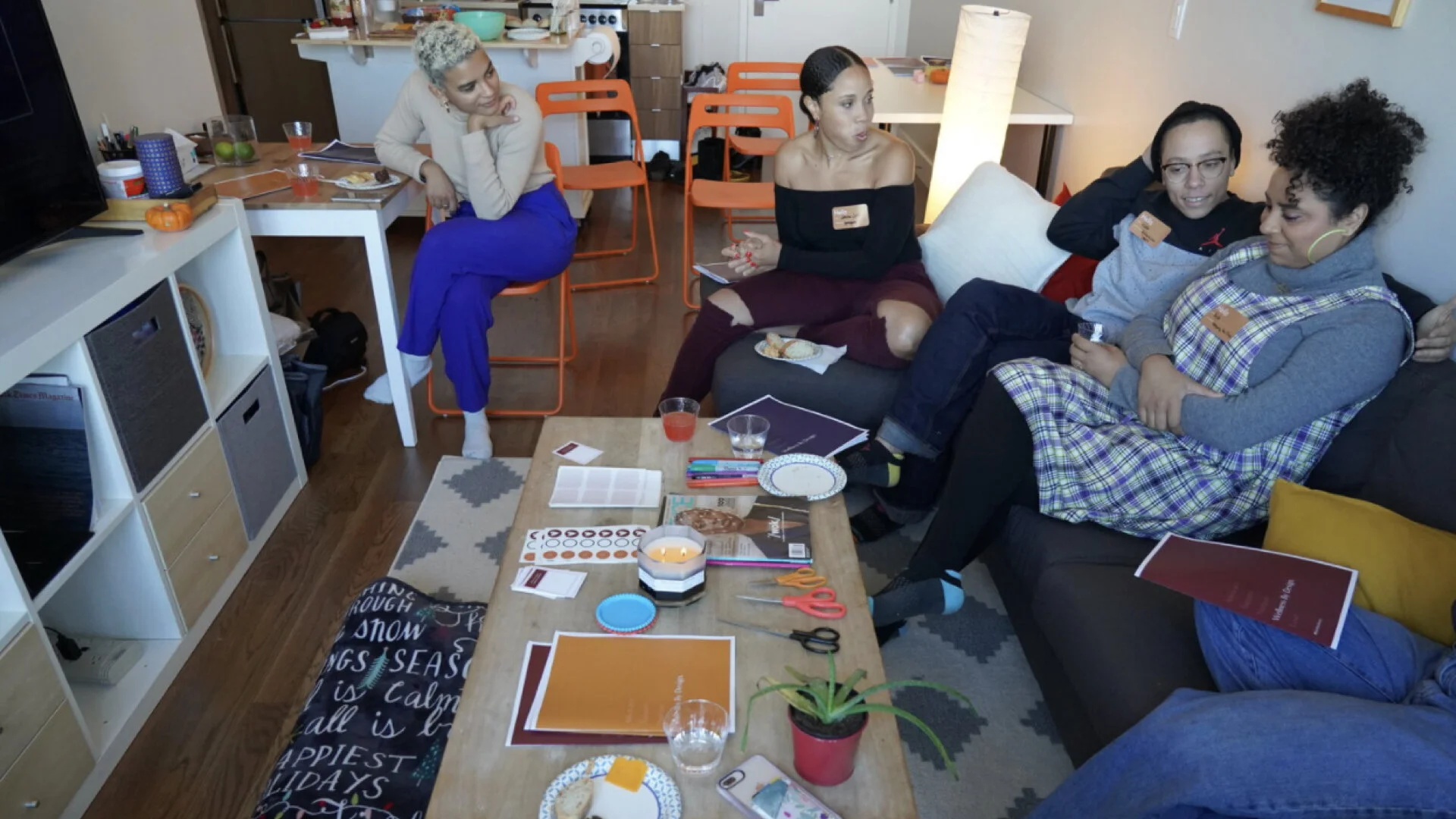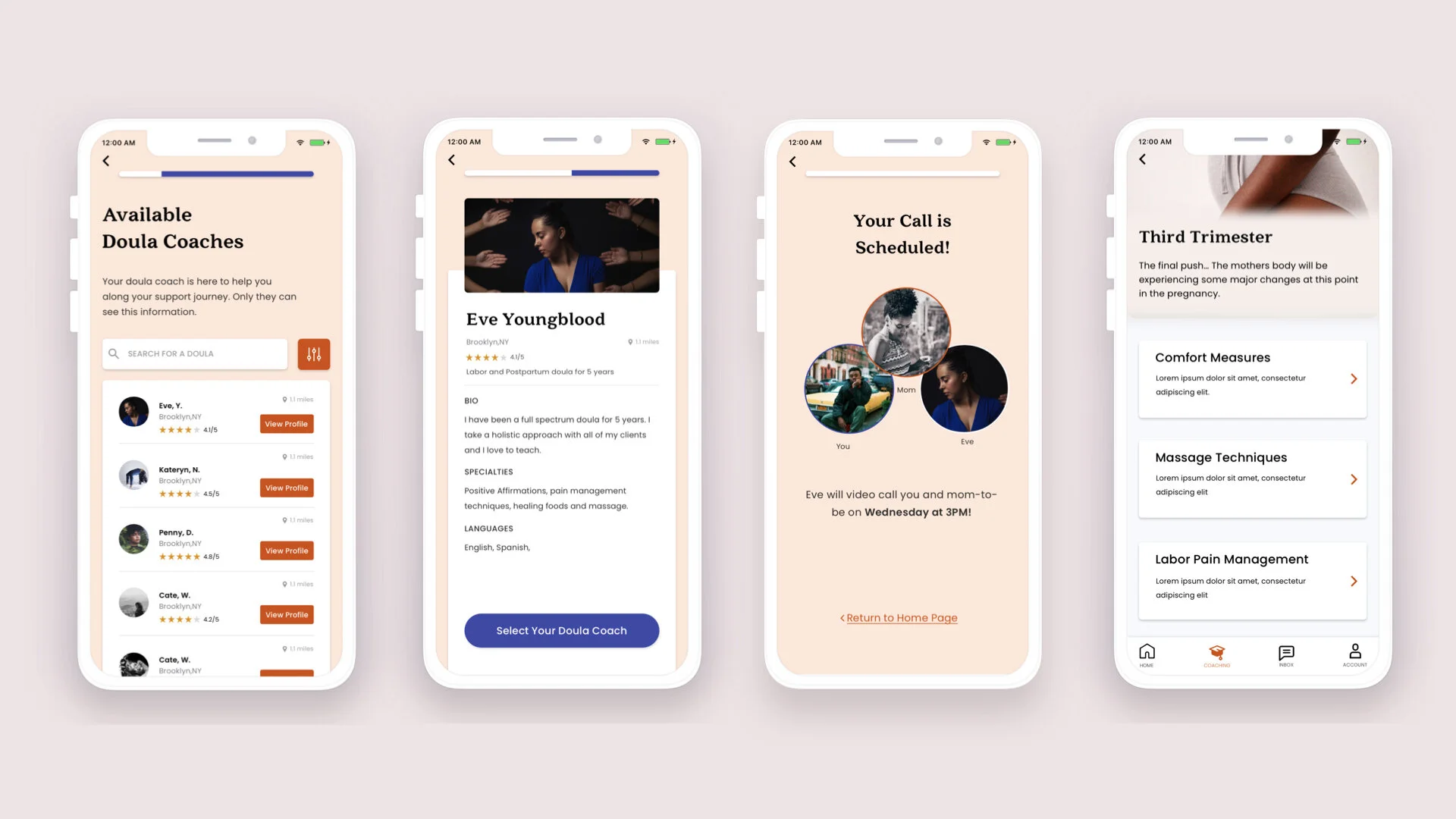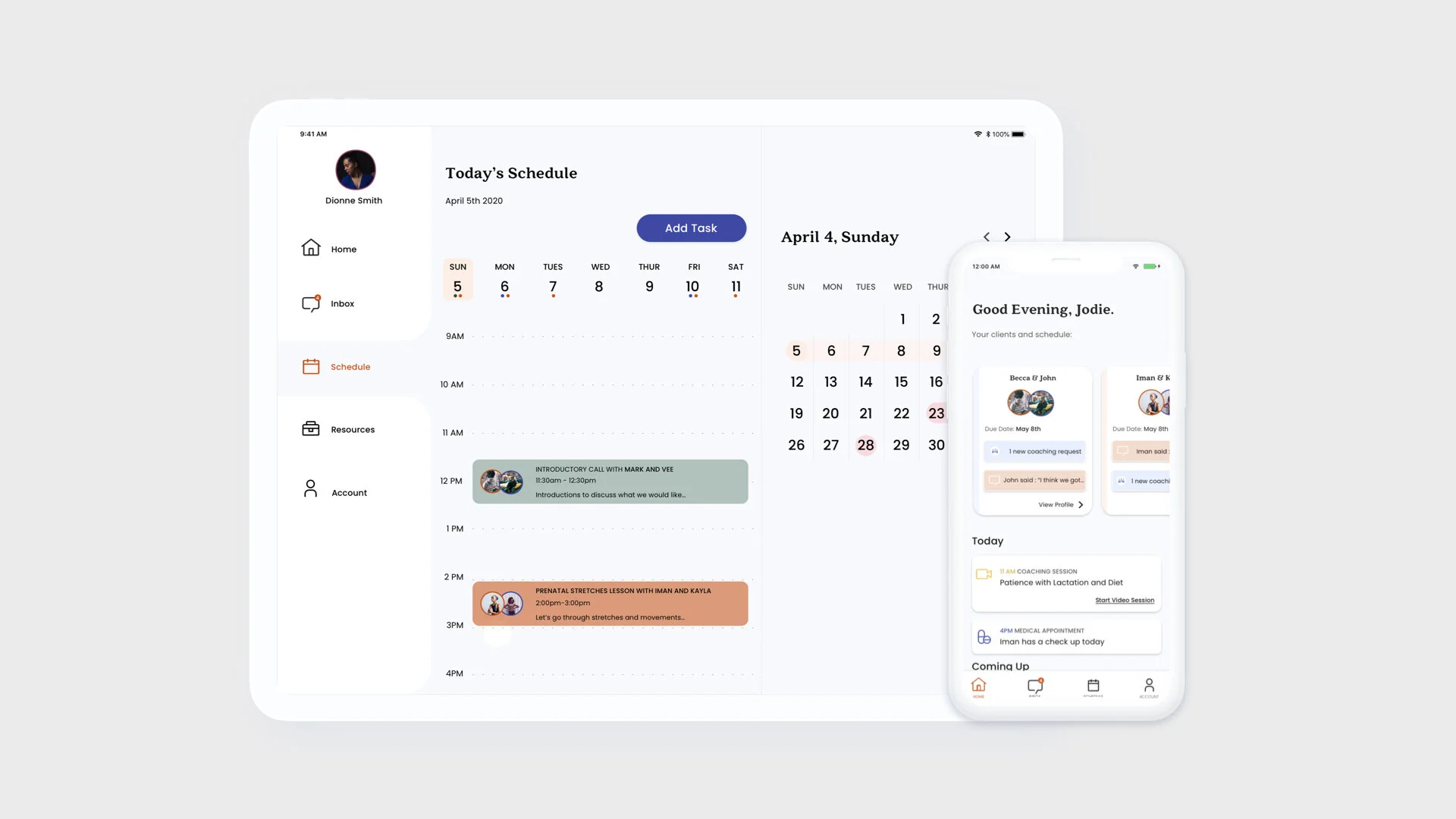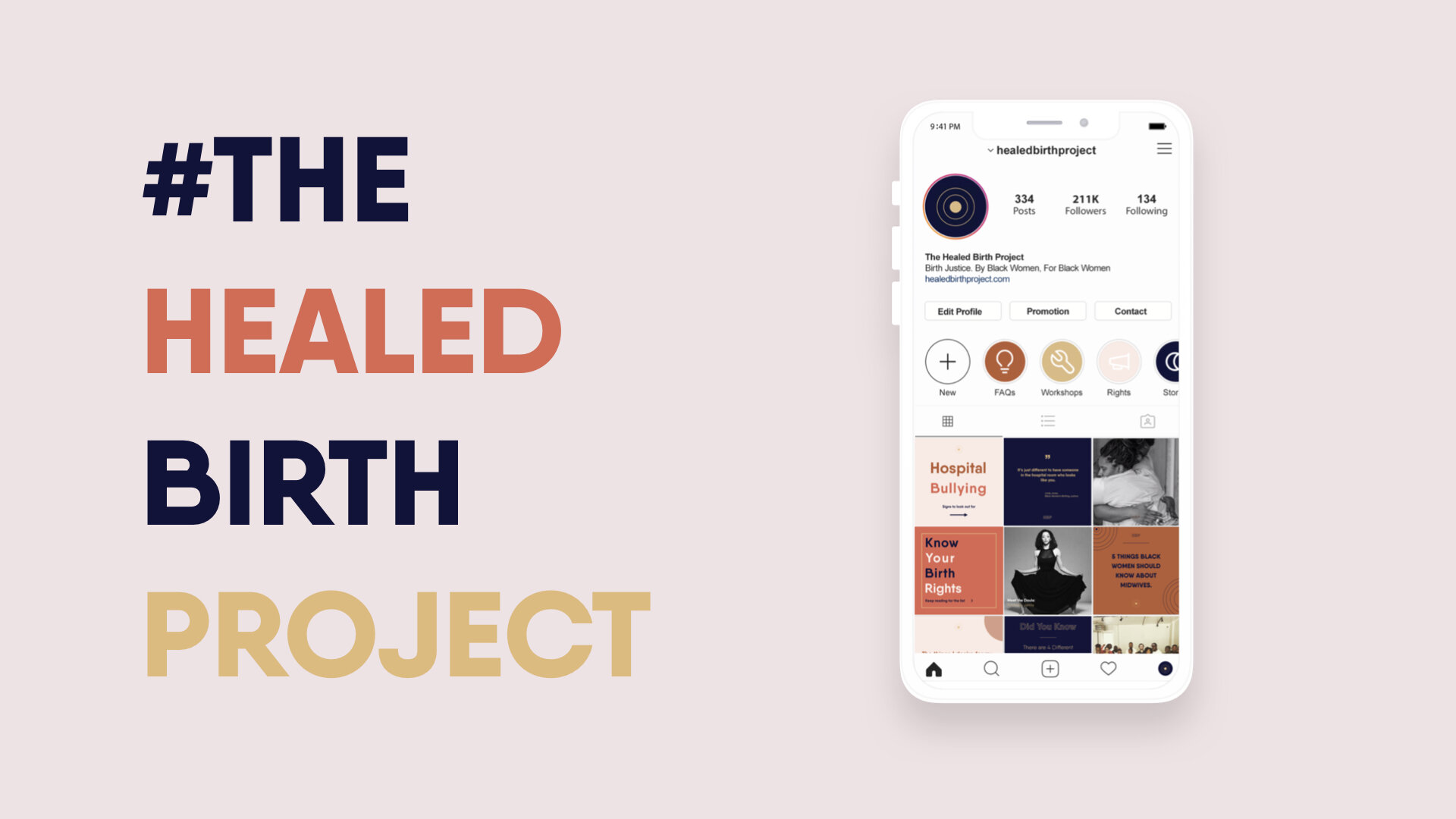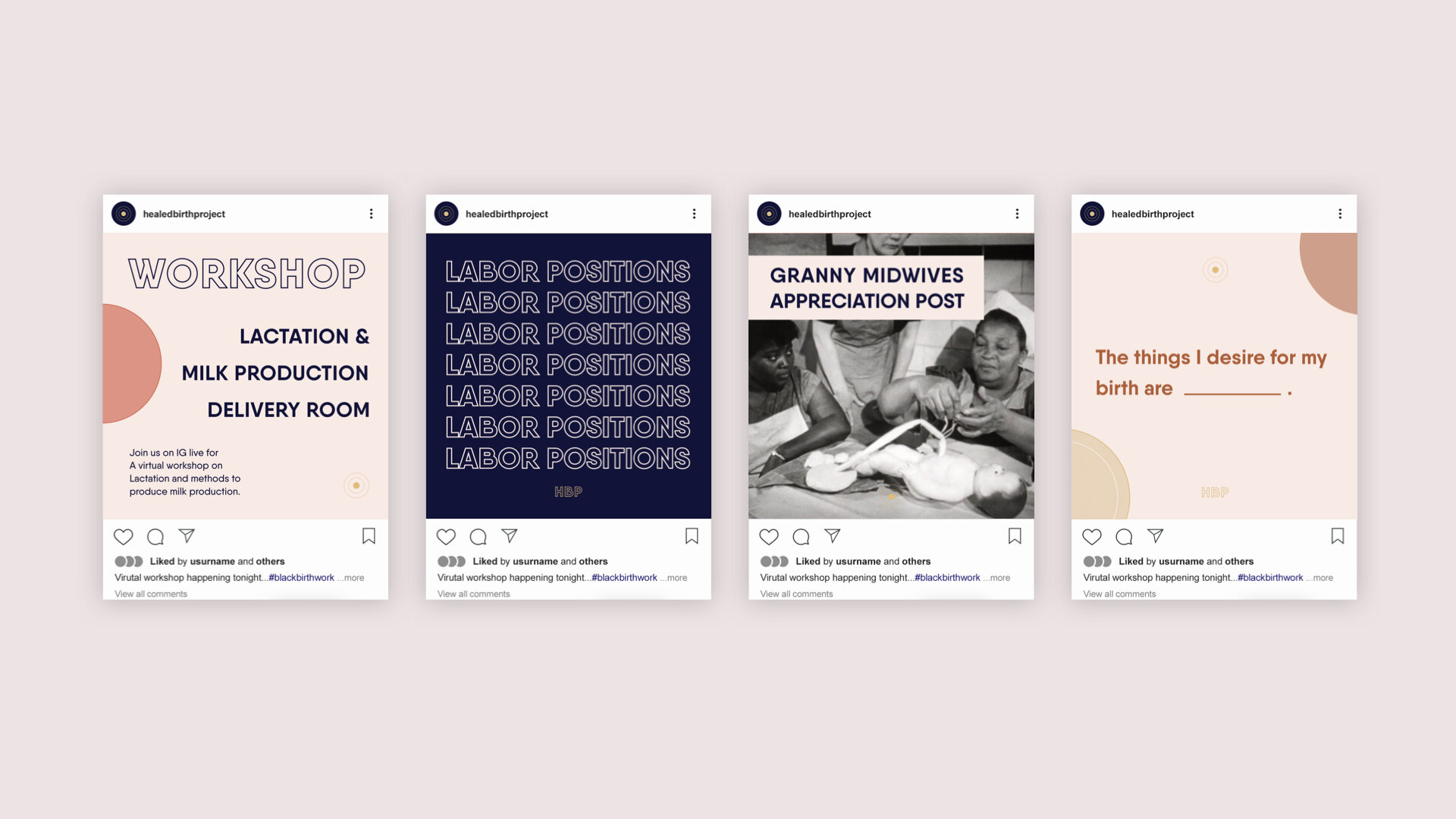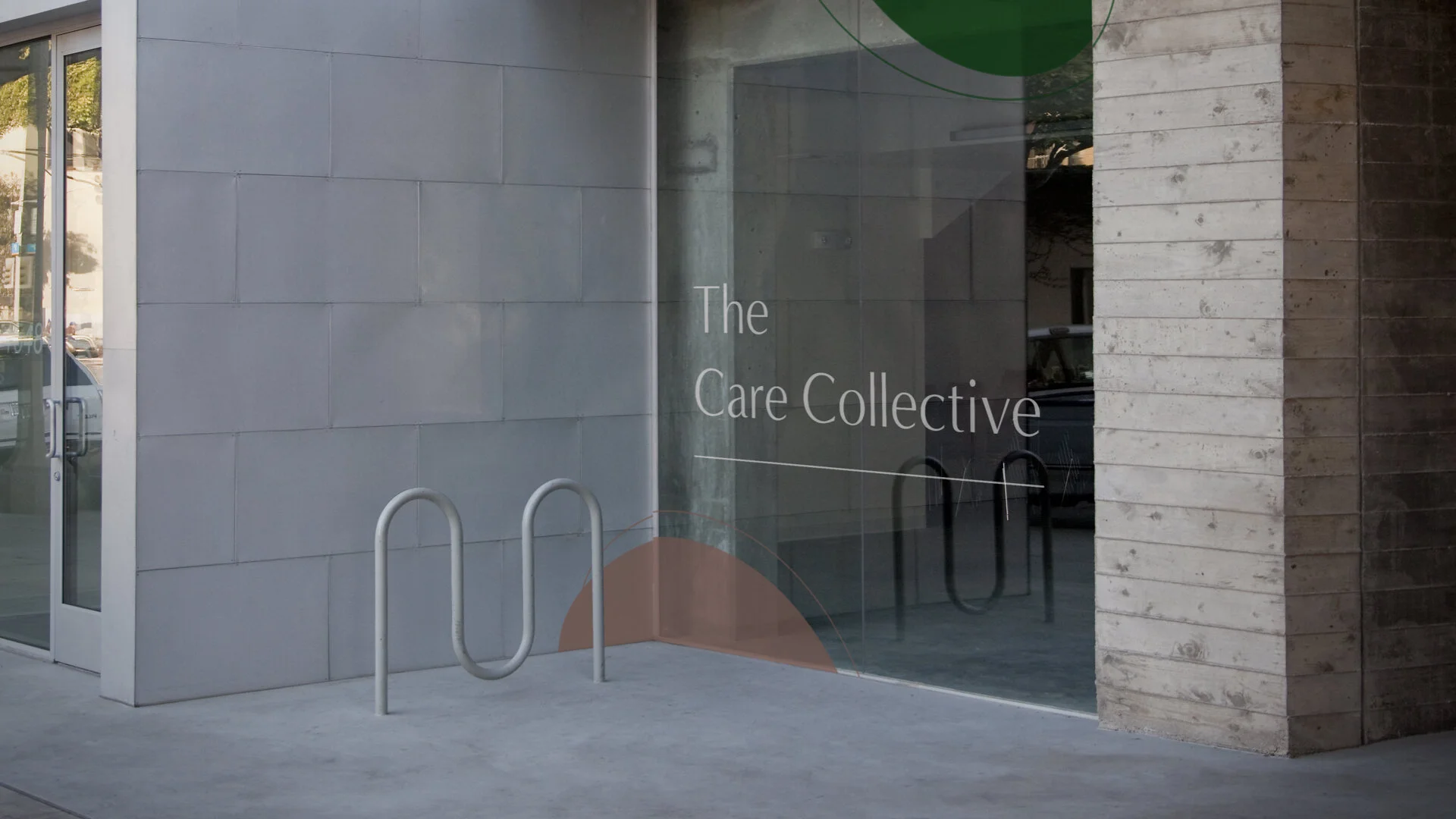BIRTH REBORN: Using Design to Address Barriers to Equitable Maternal Care for Black Women
At a time when the maternal mortality rate in the US is soaring, Victoria Ayo's thesis, Birth Reborn: Using Design to Address Barriers to Equitable Maternal Care for Black Women, aims to give voice and power back to black women and mothers. Her project explores how design can build more awareness, facilitate the integration of ancestral knowledge, leverage the community, and help eliminate barriers to equitable birth outcomes. Victoria proposes new realities for collective care, bringing the wellbeing of mothers out of isolation and into solidarity.
Black women are 3 times more likely to die from childbirth related causes. Many of these causes are preventable, causing unease and fear around the medical system.
There is an opportunity to redefine and reintroduce traditional practices within the landscape of maternal health. The products presented in this work offer explorations into how conventional notions of support and the integration of ancestral knowledge can support thriving pregnancies for women of color and, by extension, all women. In addition to her vast readings, Victoria spoke to over 20 experts that spanned many maternity-related industries, from labor and postpartum doulas, midwives, and OB-GYNs, to artists and designers.
Three main design principles guide Victoria's thesis work:
Community intervention: Where design is often utilized to "disrupt," it can also be used to heal. The tools of design hacking, co-creation, and interdisciplinary collaboration can be brought to bear in this space.
Narrative reframing: We need to reframe the negative narratives about black women's bodies in the context of the medical system, freeing them from associated racial tensions.
Ancestral knowledge: Finally, we should look to ancestral knowledge to hold the key to decolonizing western society's perceptions about mental and, in some cases, physical health and healing.
Woam
Navigating the world while pregnant can be overwhelming, and that's especially true for women who aren't sure when they will be ready to have the baby. Victoria designed a speculative portable birthing unit called Woam, which addresses and answers the question: What is an appropriate space to have a birth experience? Her work is grounded in the belief that contemporary medical practices don't always benefit pregnant bodies. Victoria's exploration of the modern birth experience revealed some unsettling realities for how women—particularly black women—navigate labor and delivery in this highly regulated, medicalized practice. As she explains, "the medical system often treats women as problems to be solved rather than agents of their own experience." Woam expands our definition of where childbearing can take place by enabling a mother to give birth—literally anywhere.
Lilli
Lilli is a garment designed for women who have recently given birth and who may be experiencing birth trauma. Birth Trauma is a shortened phrase for Post Traumatic Stress Disorder after childbirth. Evidence suggests that black mothers suffer more trauma while delivering due to higher rates of complications during pregnancy and childbirth. Birth Trauma is an invisible ailment that silences women because of the expectations put upon many black mothers to push aside their own needs and instead concentrate on their child. The Lillie garment enables healing through its physical design as well as its use of ritual.
Kiah
Victoria's research on the maternal health ecosystem showed that delays in care were a significant cause of high-risk births and undesired outcomes. To prevent delays related to prenatal care at the beginning, she developed Kiah, a smart Bluetooth pregnancy test. Kiah works by connecting to a user's pregnancy test via Bluetooth, asking the user what their preferred outcome of the test would be, and giving them breathing exercises while waiting for their results. Kiah is a pregnancy test and service that augments the existing behavior of pregnancy discovery and moves it from passive to active.
Wellness by Design
Wellness by Design was a co-creation session for black women to understand their relationship with the healthcare industry and visualize a future in which black women are supported and thriving. Three primary insights emerged from the session: Although no one thrives alone, black women are consistently asked to, the responsibility of the burden for change should be shared among many, and the community should be elevated.
Kin
Kin is a virtual doula care app that leverages members of a mother's care team by connecting them with doulas. The app also gives them access to resources such as video coaching sessions, tele-feedback sessions, and ongoing valuable knowledge throughout the pregnancy. This fulfills the need that all mothers have — the need for fully supported pregnancies. The support person would begin by looking for a live doula coach to give them valuable knowledge during the pregnancy. They would start their relationship by scheduling a call between the 3 of them. Educational information would be separated by trimester. The app would include soothing labor pain management techniques and be complete with video tutorials.
Kin Care
While Kin is developed for mothers, Victoria discovered that there is also an opportunity to design for doulas. Doulas often work unpredictable schedules. Which means they have to make the most of the time they do have. To do this, they need a tool that allows them to access pertinent information quickly. Kin Care is the doula management system that allows doulas to provide virtual care to their clients. They can keep up with their clients, track their medical appointments, schedule events, and guide clients on everything from the physical to emotional aspects of pregnancy. The app is designed for mobile, as well as for iPad.
Social Experience - The Healed Birth Project
The Healed Birth Project is a social experience that prioritizes the needs of black women during the birth process using targeted content that engages both black women and the people in their community. This content includes gamified Q&As, quotes, and valuable information they should know before, during, and after birth. Participants will take away a sense of community and comfort in knowing they have found a community of black doulas, midwives, mothers, and allies. They will also take away the knowledge that they can quickly reference this experience to fill the gaps in understanding they might have or to discover new information.
The Care Collective
The Care Collective is a proposal for a reimagined women's and family healthcare service and OB-GYN clinic; this clinic focuses on bringing prenatal, and pregnancy care out of traditional examination rooms and into groups of other women who are just as far along in their pregnancy. This less institutional setting results in lower anxiety around the doctor's office, offering improved opportunities for pregnancy education and support—all with a focus on black women. Care Collective structures appointments by first having individual health assessments with patients, where they have their vitals taken and are free to ask questions personally to the doctor or midwife. The group of 5-6 women comes together in the second half of the appointment to discuss various pregnancy and postpartum topics together.
To learn more about Victoria Ayo's work, take a look at her projects in more detail at victoriaayo.com.



